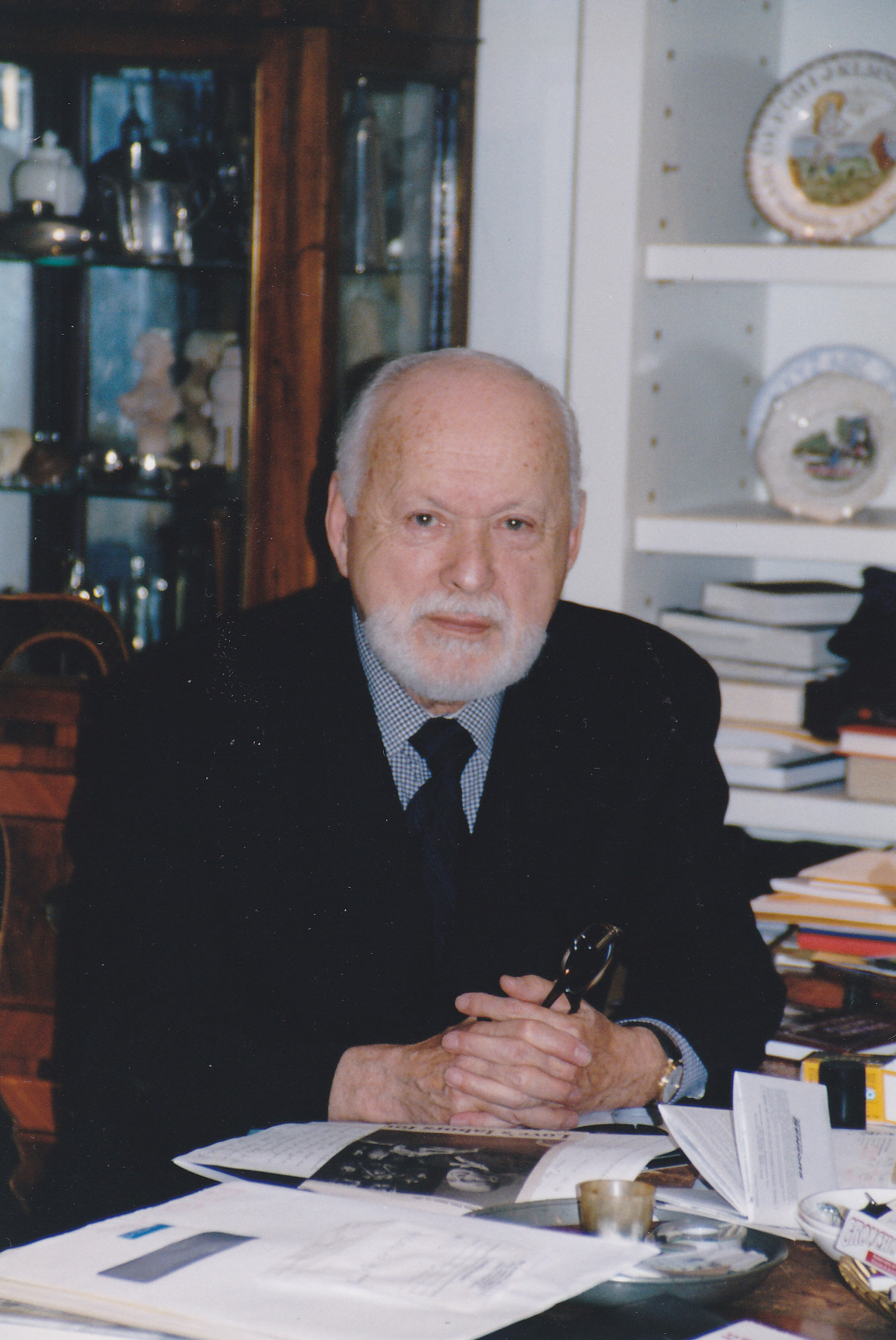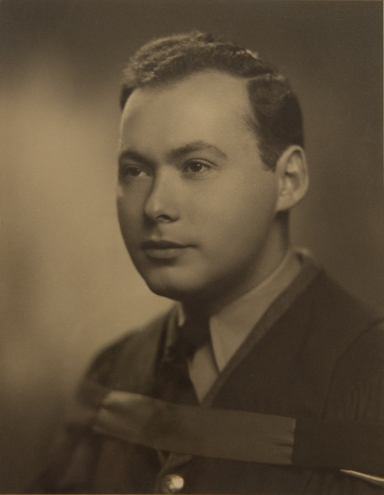Dr. Fred Weinberg
 Dr. Fred Weinberg (1919–2003) has left an indelible mark on the divergent fields of medicine, history, and museology. He led a prestigious and pioneering career in pediatric medicine that spanned over fifty years, specializing in attention deficit disorder. Fred was also a noted collector of Judaica and antique medical instruments, an accomplished Yiddishist, lecturer, and published writer in several fields, including museology, medical history, and Judaic ritual.
Dr. Fred Weinberg (1919–2003) has left an indelible mark on the divergent fields of medicine, history, and museology. He led a prestigious and pioneering career in pediatric medicine that spanned over fifty years, specializing in attention deficit disorder. Fred was also a noted collector of Judaica and antique medical instruments, an accomplished Yiddishist, lecturer, and published writer in several fields, including museology, medical history, and Judaic ritual.
Fred was born in Ostrawiec, Poland, on 6 July 1919, the son of Rose and Israel Weinberg. Israel had immigrated to Canada in 1920; his wife and children joined him several years later in March of 1924. The family settled in Toronto, where Israel worked in the garment trade at a fur manufacturing business. Israel was a supporter and aficionado of cantorial music and a founder of the Associated Hebrew Schools of Toronto and the Ostrovtzer Synagogue on Cecil Street.
Fred completed his primary and secondary education at Clinton Street Public School and Harbord Collegiate in Toronto. He also attended the Brunswick Talmud Torah, celebrating his bar mitzvah there in 1932. He continued his education at the University of Toronto, graduating from its medical school in 1944. While engaged in studies at U of T, Fred enlisted in the army and completed his officers’ training in April 1945, attaining the rank of captain. During his military career he served in the Royal Canadian Army Medical Corps at Camp Borden, the Christie St. Hospital, and at the Stanley Barracks in Toronto. Toward the end of the war, he served as officer in charge of repatriation of the POWs.
Following the war, Fred pursued his postgraduate work at Seaview and Bellevue hospitals in New York City from 1946 to 1947 and then moved on to the Children’s and Washington University hospitals in St. Louis, Missouri, the following year. The postwar move to the United States was common among Jewish medical students and doctors who experienced antisemitism while pursuing graduate work in medicine or while trying to find residencies or employment at Toronto hospitals. Following his stint in St. Louis, Fred was accepted as a resident at Sick Kids Hospital in Toronto and was later appointed chief resident under the supervision of the internationally renowned pediatrician Dr. Alan Brown. In 1950, he was hired as a physician in pediatrics at Toronto’s Sick Kids Hospital, making him the first Jewish doctor on staff—a remarkable accomplishment. In addition to his staff responsibilities, he also managed his own practice, lectured, and was a faculty member at the University of Toronto’s Medical School for many years.
By mid-point in his career, Dr. Weinberg began specializing in attention deficit disorder (ADD), becoming the leading expert in this challenging area of children’s medicine. He was appointed associate medical director of the Child Development Clinic, Neurology Division of Sick Kids and served in that role until his retirement in 1984. Post-retirement, Fred maintained a specialized practice in developmental pediatrics for close to twenty years and continued to provide his services and expertise to Sick Kids as a senior staff consultant.
In 1952, at Goel Tzedec Synagogue, Fred married Joy Cherry. The couple had four children: Joel, Barry, Sari, and Deena. Together, Fred and Joy became avid collectors of Judaica, antiques, and artwork. Fred regularly published articles in both the popular and Jewish press on subjects related to Jewish ritual, Judaica, and art. As a physician, he had also developed a passion and proficiency in the area of medical antiquities and wrote a regular column in the Canadian Journal of Diagnosis from 1998 to 2002 entitled Antique Instruments.
Over time, the Weinbergs assembled a world-class collection of Judaica and became increasingly active in the museum world. Fred was instrumental in establishing the Reuben and Helene Dennis Museum at Beth Tzedec Synagogue, contributing items from the couple’s Judaica collection and securing the acquisition of the renowned Cecil Roth collection for the museum during the early-to-mid-1960s. As a result of his significant contributions, he was bestowed the title of honourary curator to the museum. Dr. Weinberg later acted as guest curator on the Koffler Gallery’s Lifecycle exhibition in 1984 and in 1985, served as a special presenter and instructor of docents at the “Precious Legacy” Czech Judaica exhibition held at the Royal Ontario Museum. The Weinbergs’ most significant contribution to the museum world, however, was marked in September of 2000, when they were honoured at the opening of the Dr. Fred and Joy Cherry Weinberg Gallery of Judaica at the ROM, recognizing the donation to the museum of some of their most valuable and treasured pieces.
Throughout his life, Fred was actively engaged in Jewish communal work in a variety of capacities: assisting with the establishment of the United Synagogue Day School during the 1950s; as a fundraiser for the United Jewish Appeal (UJA); and as a participant in two of UJA’s early study missions to Israel in 1960 and 1961. He was also an influential figure within his synagogue, joining the Board of Directors of Beth Tzedec Synagogue during the late 1960s and serving as its president from 1972 to 1975.
Dr. Fred Weinberg passed away on 30 October 2003 at eighty-four years of age. The Weinberg Endowment Fund was established by the family at the University of Toronto’s Jewish Studies Program to honour his passion for Jewish history, ritual, and artifacts. That year the Weinberg family also set up a fund in Fred’s name in support of the Therapeutic Clown Program within Sick Kids’ Pediatric Division, a touching legacy for a pediatric pioneer.
